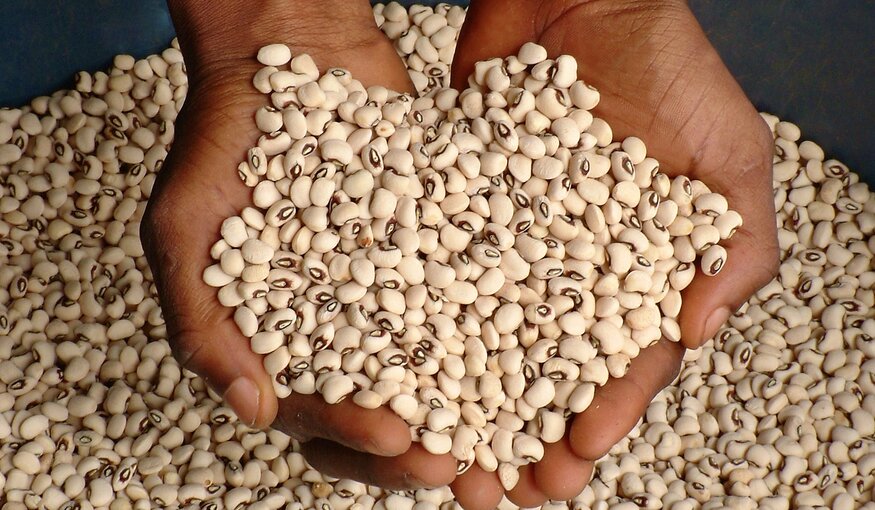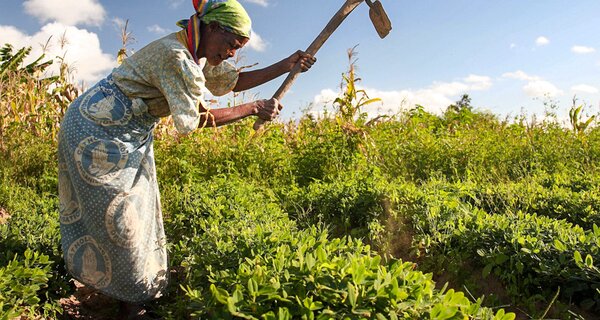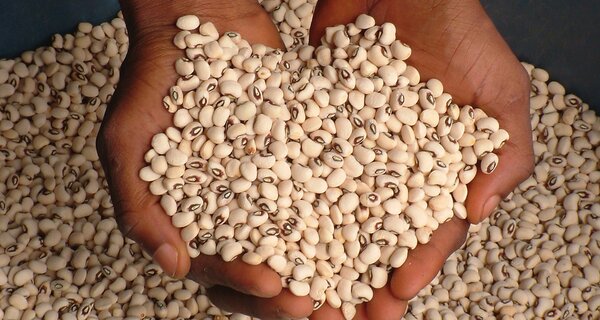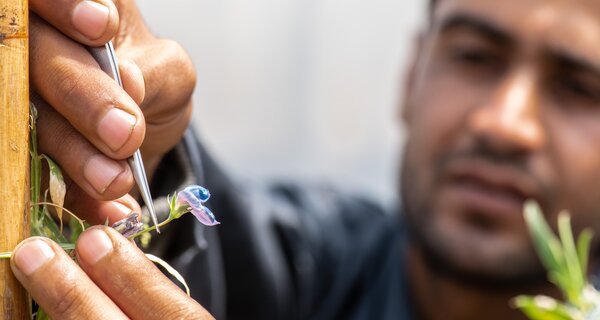Cowpeas in Nigeria Can Trace Ancestry to Genebanks

Handful of cowpeas. (Photo: International Institute of Tropical Agriculture)
7 March 2023
Take home messages
-
Four out of every 10 Nigerian cowpea farmers surveyed are growing an improved cowpea variety that can link its ancestry back to a genebank
-
The use of improved varieties has not diminished the diversity of cowpea varieties which Nigerian farmers plant
-
Genebank ancestry is positively associated with cowpea yield and Nigerian farmers’ welfare
Four out of every 10 Nigerian cowpea farmers surveyed in a recent study are growing an improved cowpea variety that can link its ancestry back to the genebank of the International Institute of Tropical Agriculture (IITA). The researchers concluded that growing these improved varieties didn’t necessarily reduce the diversity of cowpeas that farmers grew and had a significant positive impact on cowpea yield and farmers’ welfare.
Cowpea, or black-eyed pea, is an important food crop in Nigeria. Its popularity is in part related to the successful development and adoption of improved varieties. IITA started working on cowpea improvement in 1970, and now more than 50 countries, including Nigeria, have identified and released improved cowpea varieties from IITA. The IITA genebank holds the world’s largest and most diverse collection of cowpeas, with 15,122 unique samples from 88 countries,
“IITA’s contribution to cowpea improvement is well documented, but few studies have explored the linkage between IITA’s genebank and cowpea variety diversity on farms and other measures of farmers’ welfare in Nigeria,” said Abel-Gautier Kouakou, an agricultural economist and lead author of the paper.
The study used data collected from 1,524 cowpea-producing households.
“Our results demonstrate that growing an improved cowpea variety that has a genebank ancestor can lead to significant increases in the yield of cowpea, as well as household consumption of cowpea as food,” said Abel-Gautier who conducted the research as a Genebank Impact Fellow under the CGIAR-Crop Trust Genebank Platform. “In addition, the adoption of improved varieties with genebank ancestry does not seem to contribute to the erosion of cowpea genetic resources on smallholder farms in Nigeria.”
These findings suggest that IITA’s genebank is making a significant contribution to cowpea yields and farmers’ welfare, while not displacing existing diversity.
###
Abel-Gautier Kouakou is an agricultural and environmental economist, using insights from behavioral and experimental economics to help design and evaluate agri-environmental programs. He has wide knowledge and experience of impact evaluation methods, especially the experimental approach. Countries where he has studied, worked and carried out research include Benin, Côte d’Ivoire, France, Germany, and Senegal. Abel-Gautier recently completed his PhD and is currently working as a Research Fellow of the Alexander-von-Humboldt Professorship of Environmental Economics, in Osnabrück, Germany.
The Genebank Impacts Fellowship program was established in 2018 to provide an opportunity for early career professionals to gain practice-based experience in evaluating the impacts of the international genebanks. This experience is complemented by mentorship from impact assessment specialists and plant genetic resources scientists in the global system for ex situ conservation.
Category: Cowpea




